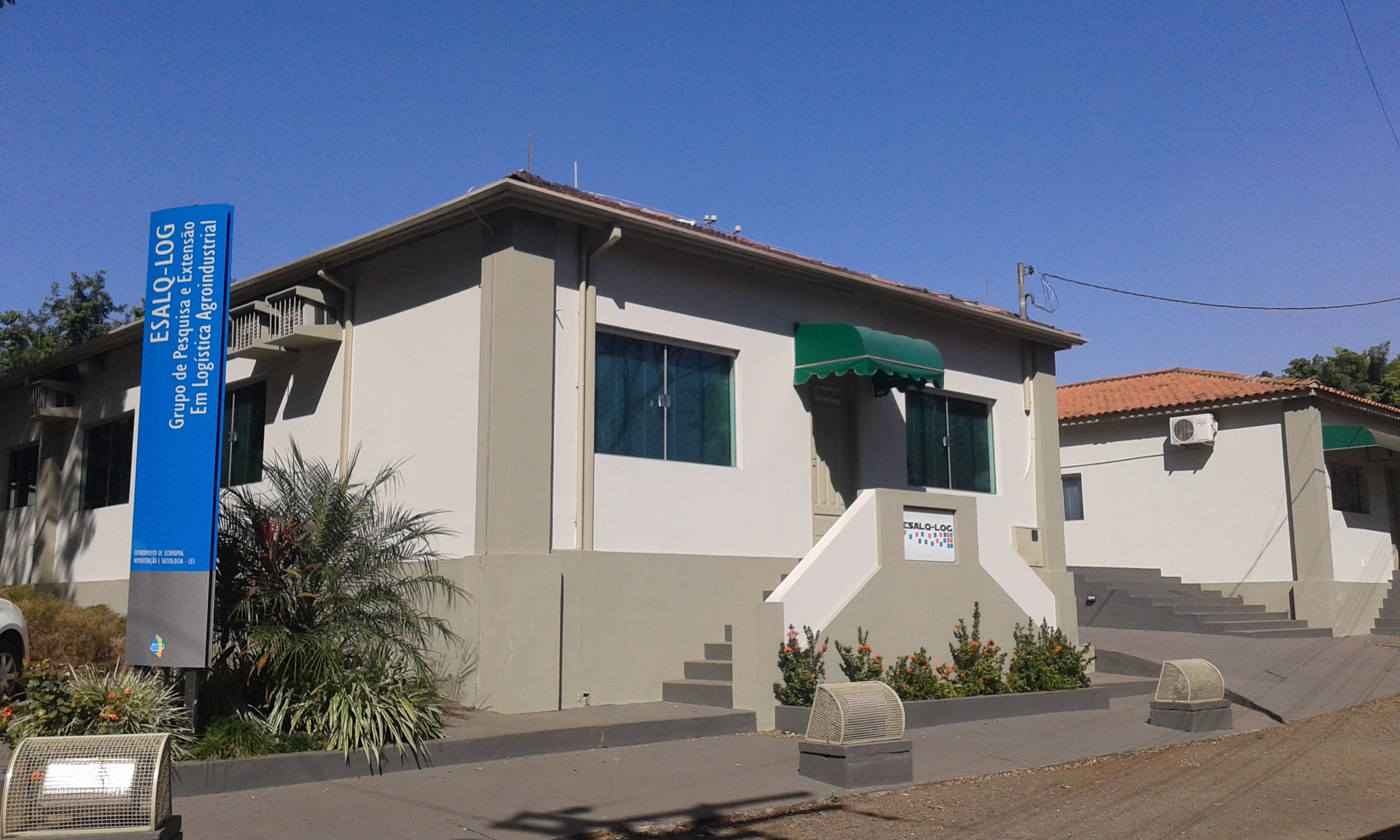About ESALQ-LOG

WHAT WE DO
The Group of Research and Extension in Agroindustrial Logistics - ESALQ-LOG, institutionally linked to the Department of Economics, Administration and Sociology of ESALQ / USP, has as its main objectives the development of studies and applied research in logistics, that can promote facilitation in national and international business, mostly into agroindustrial segments. The Group has been developing research activities in this area since the 1990’s, becoming recognized in both international and national scenarios as an one of the main references in this field of work.
Among the activities carried out by the ESALQ-LOG Group, one of them is to organize and to structure databases related to transport and storage of agricultural products, as well as the development and dissemination of tools that can help the decision making in agroindustrial logistics. ESALQ-LOG also develops optimization and statistical models to facilitate specific decisions, such as the best routes to be followed and logistic diagnostics. The elaboration of indicators that relate data such as freight prices, occupancy level, idleness and optimal locations of warehouses and depots are good examples of parts of research projects performed by the Group.


Another very active front of the ESALQ-LOG Group concerns the organization of Training and Events. SILA (International Seminar on Agroindustrial Logistics) and the Agroindustrial Logistics Training are two of the main events offered, which have been attracting professionals from Brazil and worlwide. Responsible for the monthly publication of Sifreca (Freight Information System), which continuously carries out research about the transport of various agricultural cargoes, the ESALQ-LOG Group also develops the project called Siarma (Storage Information System), with data disclosure on grain storage in Brazil. Currently, the ESALQ-LOG team is comprised of approximately 45 members, who are in a very frequent contact with representative agents of the market, raising weekly information of approximately 5,000 different routes, which are used in the development of projects for private and public institutions.
HISTORY
The agroindustrial logistics studies started at the “Luiz de Queiroz” College of Agriculture (ESALQ) from University of São Paulo (USP), through Professor José Vicente Caixeta Filho, who joined such an institution in April 1989. Graduated in Civil Engineering at the Polytechnic School of the University of São Paulo (POLI-USP) and also with a Master’s degree in Economics from the University of New England, Australia, Caixeta arrived at ESALQ bringing his know-how on mathematical modeling and logistics from his work developed for the Australian wheat market. Responsible for the implementation of a research project whose objective was to generate a mathematical model for the transportation of agricultural cargoes in Brazil, Caixeta started the studies related to agroindustrial logistics and mathematical modeling in his room, located in the Department of Economics, Administration and Sociology of ESALQ, involving several undergraduate interns. The search for information about the unit cost of transport - now disseminated as "freight" - to input mathematical models, resulted in the creation of a new methodology for the collection of this type of information. Named as Sifreca (Freight Information System), the monthly newsletter - unique produced throughout Brazil with such focus - was recognized by the class entities in the transport sector and also by private institutions related to logistics and agroindustry.


In 2003, ESALQ-LOG got the status of a Research Group acknowledged by the Brazilian National Council for Scientific and Technological Development (CNPq). In the same year, there was also the formal recognition of ESALQ-LOG as being an Extension Group as well, by the Service of Culture and University Extension of ESALQ. Thus, the studies took shape and the team formed by Professor Caixeta and the current researchers are allocated in ESALQ-LOG’s own headquarters, which include a complex of three buildings, one of them a modern amphitheater with an 100-seat capacity.
GOAL
"Carry out research and extension activities in agroindustrial logistics systems, creating knowledge of excellence, contributing to shaping professionals and collaborating for the sustainable development of the Brazilian society".
VISION
"To be recognized internationally as a reference Center in research and extension in agroindustrial logistics systems".
VALUES
Excellence, Ethics, Professionalism, Responsibility and Teamwork.
